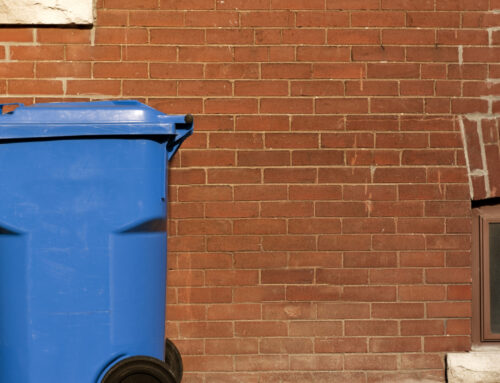
Sanitation services are essential to maintaining the cleanliness, safety, and health of our cities. From waste collection and sewage management to recycling initiatives, sanitation services play a key role in ensuring our urban areas remain livable and sustainable. Without effective sanitation, cities would face serious public health crises, environmental degradation, and economic setbacks. By managing waste, promoting recycling, and supporting hygienic practices, sanitation services contribute not only to a cleaner environment but to the well-being and prosperity of communities.
In this article, we’ll explore the critical role of sanitation services in urban settings, the ways they improve public health, and the environmental and social benefits they offer to make cities better places to live.
The Importance of Sanitation Services
Sanitation services encompass a range of activities, including waste collection, sewage treatment, recycling, street cleaning, and more. Their primary purpose is to manage waste in a way that minimizes health hazards, reduces pollution, and maintains a clean, organized environment. In cities where populations are concentrated, these services are indispensable because waste accumulates rapidly, and without efficient systems to handle it, public health and quality of life would deteriorate.
Effective sanitation not only removes waste but also creates a foundation for public health and safety. Waste management practices that prioritize hygiene and environmental protection are necessary to prevent the spread of disease, preserve air and water quality, and promote sustainable living in urban areas.
How Sanitation Services Improve Public Health
Public health is directly impacted by the quality of a city’s sanitation services. When garbage piles up or sewage systems fail, harmful pathogens and toxins can spread quickly, leading to disease outbreaks and contamination. Here are a few ways sanitation services help safeguard public health:
Reducing Disease Spread
By properly disposing of waste and treating sewage, sanitation services prevent diseases such as cholera, typhoid, and dysentery, which can be spread by contact with contaminated water or food. In areas with poor sanitation, bacteria, viruses, and parasites from waste can infect communities, leading to public health emergencies.
Improving Air Quality
Uncollected garbage releases foul odors and attracts pests, which can affect air quality. Additionally, certain types of waste release harmful gases like methane as they decompose. Sanitation services improve air quality by ensuring waste is collected and processed before it has a chance to decay and pollute the air.
Pest Control
Trash and open sewage create an ideal breeding ground for rodents, insects, and other pests. These pests carry diseases, damage property, and can even impact mental well-being. Regular garbage collection and street cleaning reduce the food and shelter sources available to pests, helping control their population.
Water Safety
Waste that is not properly managed can end up in rivers, lakes, and oceans, contaminating drinking water sources. Sanitation services prevent this by treating sewage and managing landfills to contain waste, reducing the risk of waterborne illnesses and protecting the health of aquatic ecosystems.
Environmental Benefits of Sanitation Services
Sanitation services not only protect public health but also play a key role in environmental conservation. Here’s how these services contribute to a cleaner, greener city:
Reducing Pollution
Proper waste collection and disposal prevent litter and waste from polluting natural areas like parks, rivers, and beaches. By managing garbage and hazardous materials carefully, sanitation services reduce soil, air, and water pollution, which protects wildlife habitats and ecosystems.
Promoting Recycling
Many sanitation departments promote recycling programs that reduce the amount of waste sent to landfills and conserve natural resources. Recycling minimizes the need for raw materials, such as timber, minerals, and fossil fuels, lowering the environmental impact associated with their extraction and processing.
Supporting the Circular Economy
The circular economy is based on the principles of reducing waste and keeping materials in use for as long as possible. Sanitation services encourage a circular economy by organizing recycling and composting programs, thus transforming waste into reusable resources. This reduces the demand for new resources, limits environmental strain, and helps cities operate more sustainably.
Mitigating Climate Change
Landfills contribute to greenhouse gas emissions, particularly methane, which is produced as organic waste decomposes. Many sanitation services now implement methane capture systems and promote composting to reduce the amount of organic material ending up in landfills. Through these efforts, sanitation services help reduce a city’s carbon footprint and mitigate climate change impacts.
Social and Economic Advantages of Effective Sanitation
A clean city isn’t just healthier—it’s also more enjoyable and economically stable. Here’s how sanitation services improve the quality of life and foster a positive community atmosphere:
Enhancing Community Pride
Clean, well-maintained streets, parks, and public spaces promote a sense of pride and responsibility among residents. A clean city encourages citizens to respect their environment, helping reduce littering and vandalism. This creates a positive cycle where people feel more inclined to keep their surroundings tidy.
Boosting Tourism and Economy
Cities that invest in sanitation are more attractive to visitors and residents alike. A clean, healthy environment draws tourists, who support the local economy through spending on accommodations, food, and entertainment. Additionally, businesses are more likely to invest in areas with strong sanitation infrastructure, which creates jobs and stimulates economic growth.
Improving Quality of Life
Clean, green spaces enhance mental and physical well-being. Urban environments free of trash and pollution encourage outdoor activities, physical fitness, and social interaction. Sanitation services make cities more livable by ensuring access to hygienic and pleasant spaces where people can relax, exercise, and socialize.
Reducing Healthcare Costs
By preventing diseases associated with poor sanitation, cities save on healthcare costs. Fewer disease outbreaks mean less strain on healthcare resources, which can be directed toward other public health needs. Residents also benefit from reduced medical expenses and improved overall well-being.
Challenges in Urban Sanitation
While the benefits of sanitation services are clear, cities still face challenges in managing waste and maintaining cleanliness. Rapid urbanization and population growth increase the demand for effective waste management, putting a strain on sanitation services. Additionally, managing hazardous waste and electronic waste (e-waste) presents unique challenges due to their potential to harm both the environment and public health.
Funding and public cooperation also play critical roles. In some areas, budget constraints limit the scope of sanitation services, leading to insufficient waste collection, poorly maintained facilities, or a lack of recycling programs. Public cooperation is equally essential, as littering and illegal dumping undermine the efforts of sanitation services. Community education and policy enforcement can help address these issues, making cities cleaner and more resilient.
Steps Cities and Citizens Can Take to Support Sanitation
Achieving and maintaining a clean, healthy city is a collaborative effort that requires active participation from both the government and the public. Here are some ways cities and residents can support sanitation services:
– Provide Adequate Funding: Local governments should allocate sufficient funding for sanitation services, including waste collection, recycling programs, and infrastructure maintenance.
– Encourage Recycling and Composting: Promoting recycling and composting programs can reduce the amount of waste sent to landfills, conserving resources and reducing pollution.
– Raise Public Awareness: Community education programs that teach the importance of sanitation and proper waste disposal help encourage responsible behavior and reduce littering.
– Enforce Anti-Littering Laws: Implementing and enforcing laws against littering and illegal dumping can reduce waste and promote a cleaner environment.
– Adopt Sustainable Practices: Residents can reduce waste by using reusable products, composting organic waste, and recycling properly. Small actions, when practiced consistently, have a significant impact.
Book With Us For Professional Collection Services!
Sanitation services are essential for maintaining the cleanliness, health, and prosperity of urban areas. By preventing pollution, promoting recycling, and ensuring public spaces are clean, these services play a crucial role in building communities that are safe, vibrant, and sustainable. As cities continue to grow, investing in sanitation infrastructure and encouraging public cooperation will be key to creating healthier, cleaner cities that improve the quality of life for everyone.
By recognizing the importance of sanitation services and supporting them, we help build a world where urban life can flourish in harmony with the environment. Cleaner cities lead to healthier lives, and by working together, communities can achieve the goal of a sustainable, thriving urban environment. Contact AAA Sanitation & Garbage Removal today!
AAA Sanitation & Garbage Removal
79 Business Dr Ste A
Hull, GA 30646
(706) 543-7788
https://aaasanitationco.com/






Leave A Comment